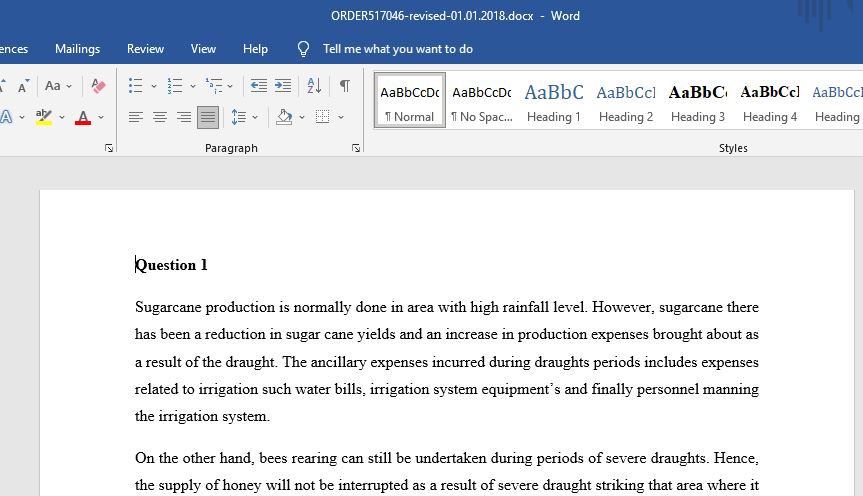Answer the questions on demand and supply correctly
Question 1 (4 marks)
Suppose a severe drought hits the sugarcane crop. Using a supply and demand model explain how this will affect the equilibrium price and quantity in the market for sugar and the market for honey.
Question 2 (8 marks)
(a). Complete the following table of costs for the Pizza Company. (3 marks)
(b). Draw the total cost curve on one graph. On another graph, draw the marginal cost, average total cost and average variable cost curves. (3 marks)
(c). Are there output levels that exhibit increasing returns to scale? (1 marks)
(d). Are there output levels that display decreasing returns to scale? (1 marks)
Pizzas Fixed costs Variable costs Total costs Marginal costs Average total costs Average variable costs
0 $1000 $—–
200 $1000 $360
400 $1000 $840
600 $1000 $1440
800 $1000 $2160
1000 $1000 $3000
1200 $1000 $3960
1400 $1000 $5040
1600 $1000 $6240
1800 $1000 $7560
2000 $1000 $9000
Question 3 (8 marks)
(a). What will happen to the bakery if a large retailer like Coles or Woolworths establishes a new store in a location close by and decides to price bread below cost as an opening special to attract customers? What will happen to the bakery if the new retailer continues this pricing behaviour for, say, one year? (4 marks)
(b). How should a monopoly choose its quantity of production to maximise profits? Explain why producing either less or more than the level of output at which marginal revenue equals marginal cost will reduce profits. Since a monopolist does not fear competition, what prevents it from raising its price as high as it wishes to make higher profits? (4 marks)
Question 4 (20 marks) (references needed)
A government implements heavy taxes on sugar-sweetened beverages (sugary drinks), as part of a comprehensive approach to decreasing overweight and obesity. You are required to write an essay to discuss this issue. Make sure that you clearly address the following questions in your analysis:
1) Using the supply and demand model explain why a tax can reduce the sales of sugar-sweetened beverages.
2) Explain whether the demand for sugar-sweetened beverages is elastic or inelastic.
3) Explain if an alternative policy such as a price floor policy (or any other policy) works in reducing the sales of sugar-sweetened beverages.
4) Critically evaluate or predict the effectiveness of the sugar-sweetened beverage tax as a policy in reducing the number of people drinking sugar-sweetened beverages.
Answer preview:
Words:2300

